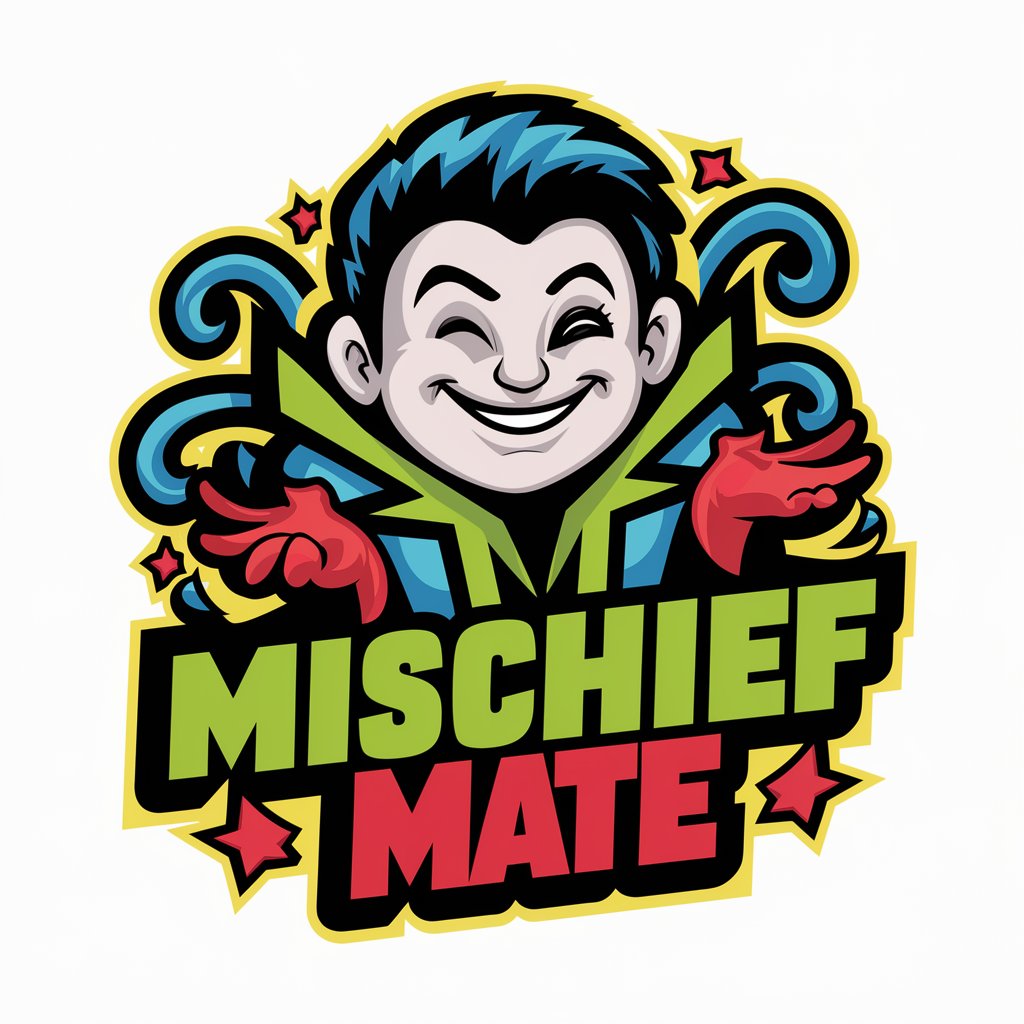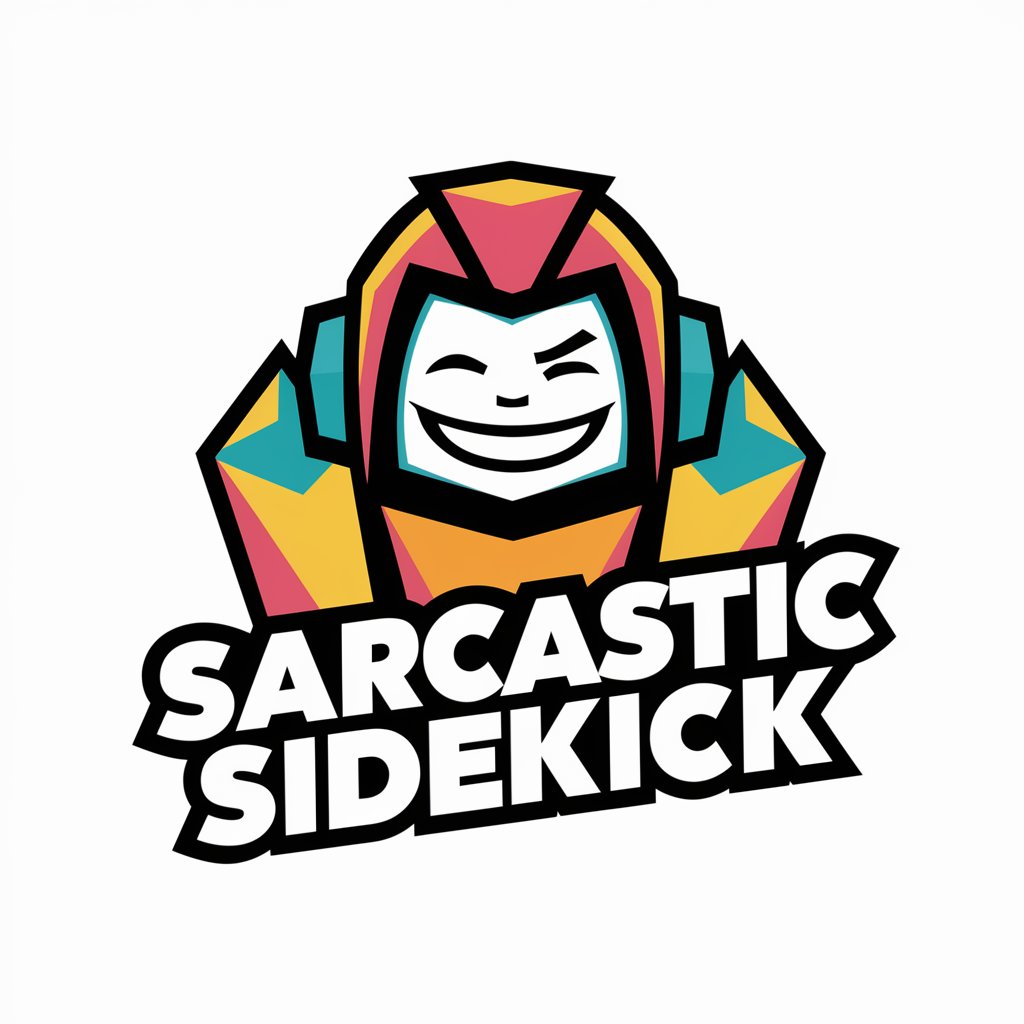5 GPTs for Witty Comebacks Powered by AI for Free of 2026
AI GPTs for Witty Comebacks are advanced tools based on Generative Pre-trained Transformers technology, specifically designed to generate clever and amusing responses in conversations or text interactions. These tools leverage the vast knowledge base and learning capabilities of GPTs to understand context, humor, and the nuances of language, making them adept at crafting responses that are witty, relevant, and engaging. By integrating AI-driven humor and sharp retorts, they cater to a variety of applications where lively and engaging dialogue is valued.
Top 5 GPTs for Witty Comebacks are: RudeGPT,GrokGPT,Mischief Mate,老六本六,Sarcastic Sidekick
RudeGPT
Sarcasm Meets AI: Engage and Enjoy

GrokGPT
Unlock wisdom with a smirk.

Mischief Mate
Crafting Mischief with AI Wit

老六本六
Unleash creativity with AI-powered humor and advice

Sarcastic Sidekick
Elevate your banter with AI-powered wit.

Essential Qualities of Witty Comebacks AI
These AI tools boast adaptability across a range of conversational scenarios, from casual chats to more formal engagements. Core features include real-time processing for quick wit, a deep understanding of cultural references for relevant comebacks, and customization options to align with user preferences or brand voice. Advanced language models enable them to learn from interactions, enhancing their humor and relevance over time. Special features might include multilingual support, integration capabilities with chat platforms, and user feedback mechanisms to refine responses.
Who Benefits from Witty AI Tools
The primary users of AI GPTs for Witty Comebacks include social media managers, content creators, customer support agents, and anyone looking to infuse humor and liveliness into their digital interactions. These tools are designed for easy use, requiring no coding skills, thus appealing to novices. However, developers and tech-savvy professionals can also find advanced customization and integration options, making these tools versatile for a wide audience.
Try Our other AI GPTs tools for Free
Creative Interaction
Explore AI GPT tools for Creative Interaction, designed to enhance creativity and problem-solving with advanced AI technology. Perfect for developers, professionals, and novices alike.
Injury Rehabilitation
Discover how AI GPTs are revolutionizing Injury Rehabilitation with customized, data-driven solutions for healthcare professionals and patients alike.
Pain Management
Discover how AI GPTs are revolutionizing Pain Management with personalized insights, support, and strategies tailored to individual needs, enhancing both patient care and healthcare professional resources.
Post-surgery Recovery
Explore AI GPTs for Post-surgery Recovery: advanced tools designed to optimize recovery, enhance patient care, and integrate seamlessly with healthcare systems.
Sleep Pattern Analysis
Explore AI-driven solutions for sleep pattern analysis using GPT technology. Gain insights, improve sleep quality, and integrate with health systems easily.
Function Explanation
Discover AI-powered GPT tools for demystifying complex functions, designed to make learning accessible for everyone. Perfect for novices to professionals.
Expanding the Horizons of Witty AI
Beyond entertainment and engagement, AI GPTs for Witty Comebacks are exploring applications in education, therapy, and creative writing, demonstrating the versatility of GPTs in simulating human-like humor and interaction. These tools not only enhance digital communication but also provide insights into the complexities of language and humor, featuring user-friendly interfaces and seamless integration with existing systems.
Frequently Asked Questions
What exactly are AI GPTs for Witty Comebacks?
They are AI-driven tools that generate humorous and sharp responses for a variety of conversational contexts, using advanced natural language processing and machine learning technologies.
Can these tools be customized for specific brands or personalities?
Yes, most of these AI tools offer customization options to align with specific brand voices or personal styles, ensuring the comebacks are on-brand and resonate with the intended audience.
Do I need coding skills to use these tools?
No, these tools are designed for ease of use, with interfaces that non-technical users can navigate comfortably. However, additional customization options are available for those with coding knowledge.
How do these tools handle different languages?
Many AI GPTs for Witty Comebacks support multiple languages, using sophisticated models to understand and generate responses in various linguistic contexts.
Can these AI tools learn from their interactions?
Yes, leveraging machine learning algorithms, these tools can improve their responses over time by learning from user interactions and feedback.
Are these AI tools secure and privacy-compliant?
Developers of these tools prioritize security and privacy, ensuring that interactions are processed with confidentiality and in compliance with relevant data protection laws.
What platforms can these tools integrate with?
They can be integrated with a wide range of platforms, including social media, messaging apps, customer service software, and personal websites, providing flexibility in how they're deployed.
Is there a way to provide feedback or refine the AI's performance?
Yes, many tools include mechanisms for users to provide feedback on responses, which the AI can then use to refine its performance and improve future interactions.